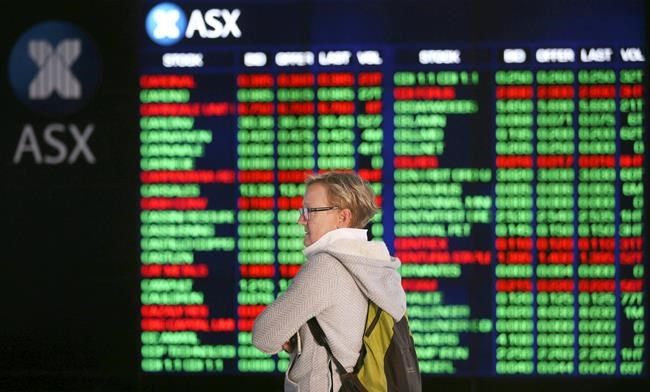BANGKOK: World markets swooned Monday after President Donald Trump threatened to increase tariffs on imports from China at a time when investors were expecting trade tensions to subside.
The CAC 40 in France lost 2.2 per cent in early trading to 5,428.65 while Germany’s DAX skidded 2.1 per cent to 12,150.16. London’s markets were closed for a bank holiday.
The future contract for the Dow Jones Industrial Average gave up 2 per cent to 25,981.00, while that for the S&P 500 lost 1.9 per cent, to 2,892.50.
Markets opened sharply lower after Trump said via Twitter that he planned to raise tariffs on imports from China to 25 per cent from 10 per cent as of Friday.
Complaining that trade talks with China were moving too slowly, he also said he would impose tariffs on USD 325 billion worth of products from China, accounting for all of its exports.
Trump said “The Trade Deal with China continues, but too slowly, as they attempt to renegotiate.
No!” The Shanghai Composite index closed 5.6 per cent lower at 2,906.46 after plunging more than 6 per cent earlier in the session.
Hong Kong’s Hang Seng index sank 2.9 per cent to 29,209.82.
Trump’s comments in tweets Sunday came as a Chinese delegation was due to resume talks in Washington on Wednesday aimed at resolving a tariffs battle that has rattled world markets.
The Wall Street Journal, citing unidentified sources, said China’s government was considering cancelling this week’s talks. But a Chinese Foreign Ministry spokesman, Geng Shuang, said Monday that the delegation was still planning to go.
He would not say exactly who might attend the talks.
In other trading, the A-share index on China’s smaller market in Shenzhen plummeted 7.4 per cent.
Japan’s markets were closed for a holiday, but the future contract for the benchmark Nikkei 225 index lost 2.4 per cent.
Shares also fell sharply in Taiwan, Singapore, Australia and Indonesia.
Many market players had anticipated news of a possible deal as early as this week in the dispute over Chinese industrial policies and technology. Analysts said Trump’s comments might be a negotiating tactic, but might also make Beijing reluctant to appear as if it was giving in to US demands.
“He (Trump) is trying to show the Chinese a little colour, maybe a little punishment. Of course, the effect is catastrophic,” said Francis Lun, a stock analyst based in Hong Kong.
Chris Weston of Pepperstone said markets had been treated to a “genuine shock.”
“However, today’s comments hit us at a time when most were expecting some sort of market-friendly resolution to be formally announced in the next two weeks,” he said.
The revived tensions over trade pulled oil prices lower.
Benchmark US crude shed USD 1.26, or 2 per cent, to USD 60.68 per barrel in electronic trading on the New York Mercantile Exchange.
It gained 13 cents to USD 61.94 per barrel on Friday.
Brent crude, the international standard, gave up USD 1.19, or 1.7 per cent, to USD 69.66 per barrel. It rose 10 cents on Friday to USD 70.85 per barrel.
In currency trading, the Japanese yen, viewed as a safe haven for investors, advanced against the US dollar.
The greenback was trading at 110.74 Japanese yen by midday Monday, down from 111.11 yen on Friday.
The euro weakened to USD 1.1185 from USD 1.1200 on Friday.(AP)







